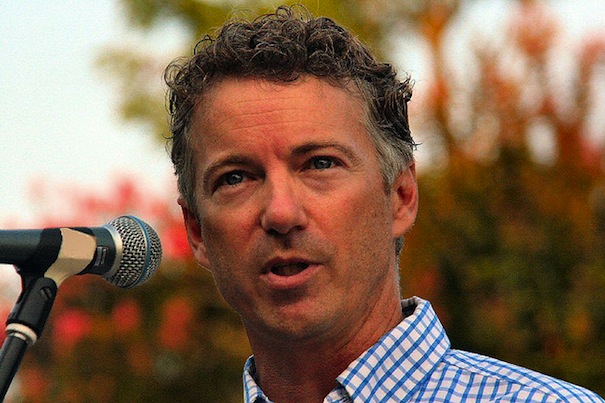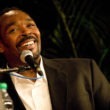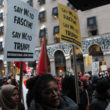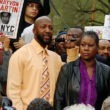Ron Paul made good sense on many issues–from George W. Bush’s foreign misadventures to the dangerous rise of the national security state. Many of his young followers, however, tended to be selective in their veneration. While they embraced his straight talk on the war on drugs (“the drug war is out of control. I fear [it] because it undermines our civil liberties”), they tuned out his neo-Confederate apologetics and his overheated rhetoric about national sovereignty and money conspiracies that appeared to come straight out of the John Birch Society’s Blue Book.
The senior Paul’s presidential campaigns were more symbolic than not; for all the enthusiasm he inspired, few mainstream Republicans supported him. His son Rand, however, is already being hailed as “the effective leader of the Republican Party.”
Though he might have begun his Senate career on the wrong foot with embarrassing stories about his NoZe Brotherhood’s collegiate pranks and his against-it-before-he-was-for-it stance on the Civil Rights Act of 1964, Rand Paul’s filibuster of the confirmation of John Brennan as head of the CIA this spring elevated his moral stature and earned him respectful national attention.
| His positions on civil liberties, particularly in light of the NSA leaks, have far more clarity, consistency, and morality than those of leading Democrats. |
He said: “I will speak until I can no longer speak. I will speak as long as it takes, until the alarm is sounded from coast to coast that our Constitution is important, that your rights to trial by jury are precious, that no American should be killed by a drone on American soil without first being charged with a crime, without first being found to be guilty by a court.”
Whistleblower Edward Snowden’s recent revelations about the National Security Agency’s domestic spying program dramatically underscored Paul’s worst misgivings about America’s secret war against its own citizens; his efforts to make himself the point person for a contemplated class-action lawsuit against the NSA will only aid him as he builds a popular national base.
Shortly after the Brennan filibuster, TPM’s Josh Marshall raised the question as to whether Paul’s “too-seldom defense of civil liberties” was in actuality “a dog whistle appeal to the black helicopter crowd,” what with its implication that the president would order “a drone strike on someone sitting in a coffee shop or someone at home with their family.”
The answer is that it’s not either/or — it’s both.
Rand Paul isn’t looking to cast off his father’s supporters; he wants to build up and out from them. As Julia Ioffe wrote in The New Republic, “Paul has managed to take the essence of his father’s radical ideology—more radical than that of any modern presidential candidate—and turn it into a plausible campaign for the Republican nomination.”
Paul is doing what all successful national candidates do—crafting a political brand that is different than the simple sum of his policy positions, many of which, taken one by one, would cancel each other out. Paul can already count on conspiracy-monger Alex Jones (“I want Rand Paul to become president … I know he’s the real deal”) and the Tea Party; he is making awkward efforts to woo black and Hispanic voters. Mindful of the Evangelical wing of his party, he has trimmed his libertarian convictions so that they stop at the female body (“my opponents call me a libertarian,” he said, “but I want to assure you that I am pro-life“); as suspicious of foreign entanglements as he may be, he has declared that “any attack on Israel will be treated as an attack on the United States.”
Though few establishment Republicans are likely to climb aboard a Rand Paul bandwagon, at least during the primaries, their influence in the party is at its nadir; Paul might not need their support to prevail. Some Democrats believe a Rand nomination would mean a shoo-in for the Democratic nominee in 2016, but that’s premature to say the least. Even though Paul is eclectic, eccentric, and right-wing, his positions on civil liberties, particularly in light of Snowden’s leaks, have at this point far more clarity, consistency, and morality than those of leading Democrats.
As we now know, Snowden contributed $500 to Ron Paul’s 2012 campaign; Paul reciprocated by voicing his fears to a Fox Business Network reporter that “somebody in our government might kill him with a cruise missile or a drone missile.”
Black helicopter stuff? One can only hope.
Arthur Goldwag is the author of Isms & Ologies; Cults, Conspiracies, and Secret Societies, and most recently The New Hate: A History of Fear and Loathing on the Populist Right. He lives in Brooklyn with his wife and two children. Follow him at @ArthurGoldwag.






0 Comments